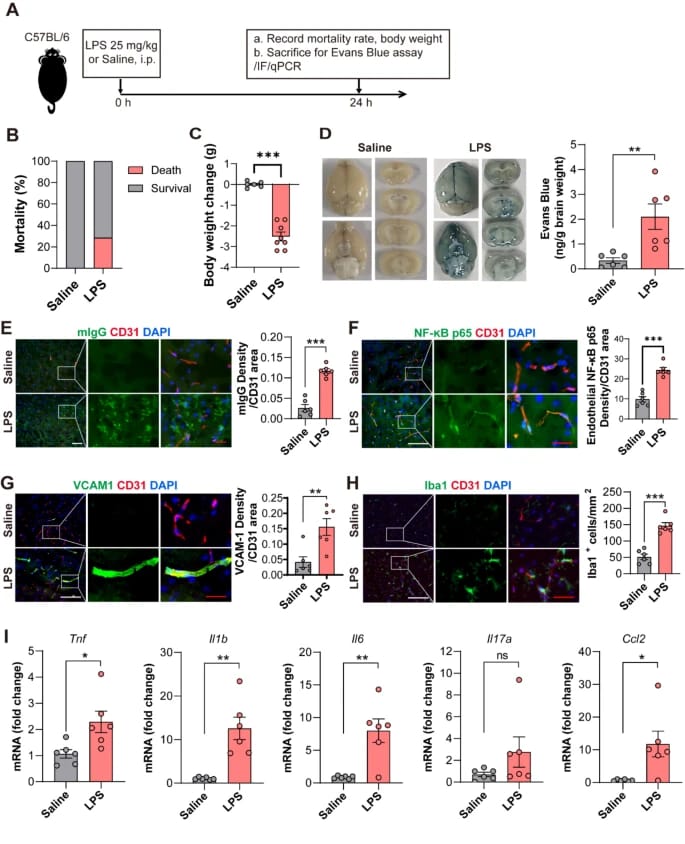By Xiaowen Huang et al.
Source BMC
新冠敗血,腦病叢生
48.9 million people suffer from sepsis each year, and 19.7% of global deaths are related to this disease.
Sepsis-associated systemic inflammation often causes acute neurological dysfunction with the presentations from mild delirium to deep coma, which is collectively called as sepsis-associated encephalopathy (SAE).
Many of these patients suffer from long-term cognitive impairments even if surviving from sepsis.
The blood-brain barrier (BBB) is the first line to defend against the interference of peripheral inflammatory molecules and cells with the central nervous system (CNS).
Disruption of the BBB is found to be related with systemic inflammation in sepsis autopsy on sepsis-related deaths.
COVID-19 is a hyperinflammatory medical condition induced by uncontrolled release of proinflammatory cytokines.
Recent studies found that SARS-CoV-2 infection causes BBB dysfunction via inhibiting Wnt/β-catenin signaling in brain ECs (endothelial cells).
The disruption of BBB not only leads to acute neurological disorders, but also increases the susceptibility to CNS diseases, such as Alzheimer’s disease (AD), Parkinson’s disease (PD), multiple sclerosis (MS), and stroke.
COVID-19 may be seen as a new type of sepsis.
Read more click here

